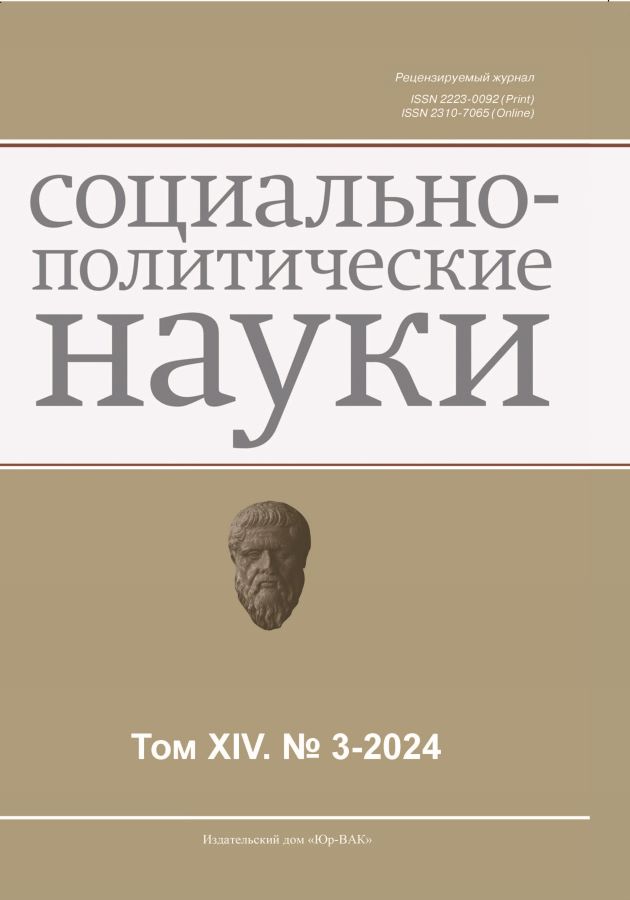Development of energy transport corridors in the Middle East as the basis of regional conflicts
- Autores: Bocharov Y.B.1
-
Afiliações:
- Institute for Information Wars Research
- Edição: Volume 14, Nº 3 (2024)
- Páginas: 16-22
- Seção: Conference “Second Moscow Political Science Forum”
- URL: https://journals.eco-vector.com/2223-0092/article/view/635456
- DOI: https://doi.org/10.33693/2223-0092-2024-14-3-16-22
- EDN: https://elibrary.ru/ICVLDF
- ID: 635456
Citar
Texto integral
Resumo
Purpose of the study. The article examines the problems of vulnerability of energy transport corridors in the Middle East and their impact on the global economy. The role of geopolitical actors such as the USA, Russia and China on the development of relations between the countries of the Middle East and the resulting tension in the region due to their rivalry are analyzed. A brief overview of the reasons why a number of countries in the region have problems when planning and creating new transport and energy corridors connecting the region with other countries of the world is given. It is concluded that the development of energy transport corridors in the Middle East serves as both a source of development and a catalyst for regional conflicts. Understanding this relationship between energy strategies, geopolitics and conflict is an important aspect for developing sustainable and peaceful solutions in this strategically important region.
Palavras-chave
Texto integral
Sobre autores
Yuri Bocharov
Institute for Information Wars Research
Autor responsável pela correspondência
Email: yurabig@gmail.com
ORCID ID: 0000-0003-0345-0173
Código SPIN: 9136-5824
Cand. Sci. (Polit.); Director
IsraelBibliografia
- Brebdani A. China in the Middle East: Confrontation with the USA. International Relations. 2022. No. 4. doi: 10.7256/2454-641.2022.4.39082 EDN: EGKKFA. URL: https://nbpublish.com/library_read_article.php?id=39082
- Shcheglovin Yu.B. About the India – Middle East – Europe Economic Corridor project against the backdrop of the development of Saudi–Indian trade and economic relations. Middle East Institute. 09.12.2023. URL: http://www.iimes.ru/?p=101379
- Fulton J. China’s changing role in the Middle East. Atlantic Council Policy & The Rafik Hariri Center for the Middle East, June 2019. 21 p. ISBN: 13: 978-1-61977-590-9.
Arquivos suplementares









